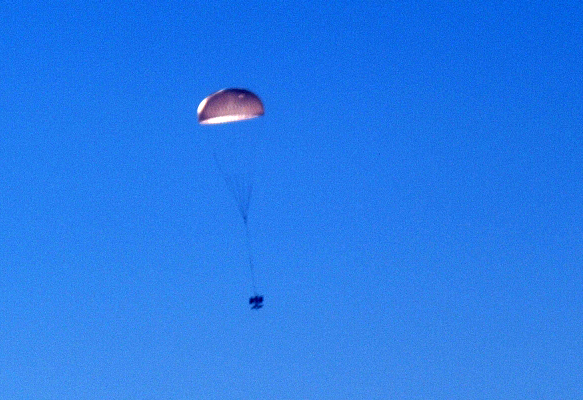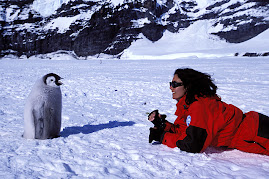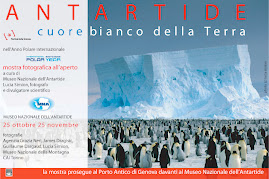Published: Dec. 29, 2007 at 8:35 PM
EDUARDO FREI MONTALVA STATION, Chile, Dec. 29 (UPI) -- A Norwegian cruise ship sustained minor damage overnight Saturday when it lost power and bumped into a glacial iceberg along the Antarctic coast.
The accident occurred when the ship lost power just after it finished a planned landing at Brown Bluff.
"We hit a glacier. We have damage to a starboard lifeboat and a little bit forward," said Steinar Hansen, the Fram's captain.
A power outage that lasted 40 to 50 minutes sent the vessel adrift against a wall of glacial ice before power was restored.
It's the second Antarctic cruise ship to run into trouble in recent weeks. On Nov. 24, the MS Explorer -- a cruise ship operated by a Toronto company -- hit an iceberg off Antarctica, forcing its 154 passengers and crew into lifeboats in the middle of the night. They waited more than three hours before they were rescued by another cruise ship.
________________________________________________________________
The Fram anchored before midday near Chile's Eduardo Frei base in an ice-free area west of King George Island.
"Everything is fine on board and we still have all the passengers on board," Hansen said. He added that the ship was "waiting for orders" on whether to continue its voyage.
Robert O'Connor, a 26-year-old American from South Bend, Ind., said he was in his cabin late Friday when the ship's crew told the passengers to head above deck.
"The electricity on the ship went out and we started drifting backward," he told the AP. "I actually saw the wall of ice coming up the starboard side. It came up fairly quickly, the ship drifted into it."
He reported a jarring impact that bent the railing and buckled the lifeboat. The captain and crew checked the ship and calmed nervous passengers, and after that "there were free drinks on the house," he said.
____________________________________________________________
The Antarctic and Southern Ocean Coalition
ASOC Secretariat
1630 Connecticut Ave NW Washington, DC 20009 USA
Tel: 1-202-234-2480 Fax: 1-202-387-4823 www.asoc.org
November 26, 2007
ASOC Statement on the Sinking of the Tourism Cruise Vessel MV Explorer in Antarctica
ASOC regrets the sinking of the tourism cruise vessel MV Explorer off King George Island,1 South Shetland Islands, 24 November 2007, and expresses its relief that the safety of all aboard has been protected by the action of the ship’s crew and the international rescue effort that followed evacuation of the ship. This accident happened to a well-tested, ice-strengthened vessel run by experienced crew that operates fully under current industry guidelines in a location that is, for Antarctic standards, well known. Notwithstanding this, providing assistance resulted in a major undertaking involving a number of other ships and disjunction to the activities of several National Antarctic Programs. The environmental impact of the sinking of the vessel is a cause of concern. The ship is reported to carry more than 180,000 liters of marine diesel. While most of the fuel may still be contained in the vessel it will eventually be discharged into the marine environment. The fact that such an accident could occur with such a vessel, in such a well-known part of Antarctica, demonstrates the continuing risk of all tourism operations in Antarctica. As with other incidents involving Antarctic tourism cruise vessels in the past twelve months, this accident could be described as a “best case scenario” – the weather conditions were relatively good, nobody was hurt during the collision or evacuation, and help was at hand. The accident highlights the risks of conducting Antarctic tourism in larger or less suitable vessels, by less capable operators, or in parts of Antarctica that are less well-known or more remote, where there would be less help at hand. This incident involving a capable vessel with just over 150 people aboard throws into stark relief the risks posed by the enormous vessels which have now begun to operate in the Antarctic, some of which carry five or more times that number of people. Not only do these vessels carry more fuel, but also the largest ones tend to carry heavy fuel oil, which poses an even greater risk to the marine environment.
Antarctic tourism has been growing, expanding and diversifying at a rapid pace for well over a decade, yet the Antarctic Treaty System lacks of a comprehensive policy for tourism in Antarctica. ASOC believes that there is an urgent need for Antarctic Treaty Consultative Parties to establish sensible operating rules before a catastrophe occurs. Steps to be considered include banning ships exceeding a certain size and carrying more than a certain number of people or a certain amount of fuel on board, establishing ice-strengthening standards for vessels which go into Antarctic waters, and reviewing how existing regulations are complied with, particularly with regard to Environmental Impact Assessment (EIA) to assess whether the actual or potential impacts of tourism are sufficiently taken into consideration, including not only the impact of routine operations but also impacts of potential contingencies. Annex VI to the Antarctic environmental Protocol on Environmental Liability Arising from Environmental Emergencies was signed in 2005 after more than a decade of negotiation. To date, the Parties that have ratified Annex VI are The Netherlands, New Zealand, and Sweden. ASOC notes the duty of Antarctic Treaty Consultative Parties to ensure the entry into force of Annex VI on Liability as a matter of urgency. In line with government statements about protecting the polar environment, ASOC contends that Annex VI should enter into force before the end of the International Polar Year 2007-08.
For further information please contact:
Jim Barnes
Email: jimbo0628@mac.com
Ricardo Roura
Email: ricardo.roura@worldonline.nl (English, Spanish)
Note to editors regarding recent incidents involving Antarctic tourism vessels
• Grounding of the Nord Kapp at Deception Island, 31 January 2007. The accident resulted in the spillage of marine diesel into the marine environment and resulting environmental damage. There were no victims.
• Grounding of the Luybov Orlova at Deception Island, 15 November 2006. It is believed that the rescue call was made 15 hours after the vessel grounded, at which time no MAYDAY call was raised. There was potential for the situation to have worsened. The Luybov Orlova was towed off the sandbank, taking 3 hours to complete.




















